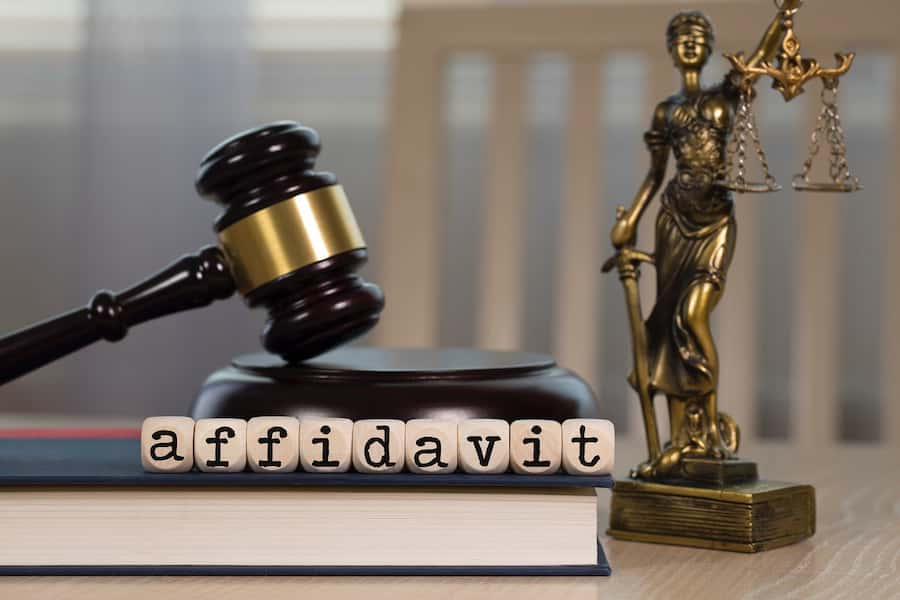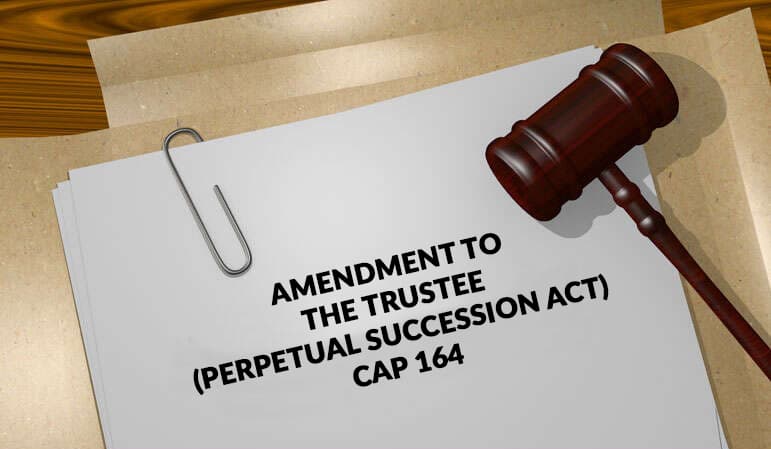Introduction
Estate planning entails the process of disposal of one’s assets in a structured manner that goes beyond the determination of who will benefit from the property. As such, one may need to consider whether it is appropriate in his/her circumstances to set up a trust as a form of estate planning in his/her lifetime and transfer some of his/her assets into the trust during his/her lifetime and/or after death.
Purpose of trusts
The main aim of estate planning is to reduce the uncertainties as to what fate would befall one’s estate upon death. Trusts can be extremely useful instruments in the long-term planning of the ownership and management of one’s private and business assets and estate as they provide certainty on the eventual ownership of the property during and after his/her life.
Creation of trusts
In Kenya, trusts serve as an alternative to disposing of an estate through writing a will. Setting up a trust revolves around an arrangement creating a relationship between the following key parties:
- the person transferring his assets into the trust during his lifetime as ‘the settlor’
- the appointed persons to hold the property for the benefit of a third party, ‘the trustee(s)’; and
- the third parties receiving benefit of the property transferred as the ‘beneficiary’
Trusts are created through the execution of a Trust Deed as the instrument governing the relationship between the settlor and the trustee. Acting as the ‘constitution’ of the trust, almost akin to memorandum of association or articles of association of a company, it spells out the objects of the trust, properties held under the trust, power of trustees and the particulars of the administration of the trust. It serves as proof of the beneficial ownership of properties in the trust.
Once drafted and executed, the trust deed is required to be registered at the registrar of companies (owing to the Statute Law (Miscellaneous Amendments) Act, 2024 that amended the Trustees (Perpetual Succession) Act) to give the trust legal validity. The trust deed provides certainty of the beneficial ownership of the property owned as it clearly defines and easily identifies them. Certainty in the objects of the trust also makes the reason for the formation of the trust easily identifiable. Once payment of stamp duty is made, the trust can be registered and incorporated. The trust thus obtains a separate legal status, can own property in its own name, enter into contracts and carry out its activities as a separate and distinct legal entity.
Types of Trusts in Personal Estate Planning
There are several types of trust structures which an experienced lawyer can give advise on to determine which best suits one’s needs.
- Family trusts – these are trusts in which the settlor appoints trustees manages and distributes the wealth and income out of the trust based on the changing circumstances and needs of the different family members. As a safeguard, a settlor can appoint an enforcer or protector of the trust who is a person who he trusts, who knows the family well, who can supervise the trustees and ensure the trustees carry out their duties properly. During the lifetime of the settlor, the settlor can be a protector and he can be a beneficiary as well. Family trusts can either be living trusts or testamentary trusts and may have charitable or non-charitable aspects.
- Irrevocable trusts – these are trusts established with the express power of revocation. Where the trust provides for express power of revocation, but the settlor does not exercise the said power during their lifetime, the trust will be considered an irrevocable trust.
- Non-Charitable trusts – these are trusts that do not have beneficiaries. They are set up for a specific legal purpose which, whether charitable or not, should be capable of fulfilment. They also have explicit provisions providing for the disposition of surplus assets of the trust upon its termination.
- Charitable trusts – these trusts are established to be beneficial to the general public and may focus on human rights, environment, education and religious issues among other areas of public focus. They must be discretionary where although the trustee has total discretion in both the income and capital of the trust, they must act in the best interests of the beneficiaries while exercising their discretion. A charitable trust registered in Kenya can pursue its objectives in Kenya or any other jurisdiction. The trustee has the power to defer distribution for a period not exceeding the duration of the trust.
Advantages of setting up a trust
The primary objective of a trust is to create or preserve wealth for future generations. Its notable advantages include:
- The major advantage of such a trust is that no probate and administration and therefore no court process will be required to follow upon a settlor’s death. This is because once the assets will have been transferred to the trust, the same are no longer considered as part of the settlor’s estate. This reduces the chances of family disputes over the assets, ensures there is continuity of ownership and that there are no delays in terms of use of assets. Beneficiaries can be identified as named persons or a category of persons, such as children and grandchildren
- The settlor can use it as a wealth management and succession planning tool such that the trustees would invest and manage the assets and would make distributions of income to the beneficiaries based on the beneficiaries’ needs
- The settlor may also be a beneficiary of a trust they have created thereby benefiting from the property in the share he/she deems fit
- Family trusts offer protection for family members with special needs or medical conditions
- Trusts offer tax and other efficiencies experienced as a result of having a family trust structure
- Trusts safeguard against spendthrift beneficiaries by imposing conditions on access to the trust ensuring responsible financial management
- Any disgruntled dependant or creditor would not be able to claim against the assets vested in the trust as they do not form part of the settlor’s estate on his/her death
- On a divorce, the assets vested in the trust would not be subject to matrimonial proceedings and thus would not be subject to division and
- Generational wealth is guaranteed as a family trust can hold and protect wealth forever if the trust is managed accordingly.
Conclusion
Effective estate and succession planning is important as it gives you control of how you would want your assets and wealth to be distributed and held including in the case of a trust on a long-term basis. A legal adviser can give effective solutions depending on your circumstances to achieve your wishes. Whether your circumstances are simple or complex, at the very minimum it is important to have a written will in place.
At Netsheria International, we pride ourselves for having a wide variety of skillsets, resources and expertise to meet your needs in matters related to trusts and subsequent incorporation. Kindly visit our website where you can access our services at the click of a button. You can also reach out to us via email or call us on +254 741 296 087 for any questions or guidance regarding this topic or any other legal queries you may have.






